Note taking is critical in performing well in school. Unfortunately, this does not come easy. You need to have the skill for it. Yes, note taking is a skill that you have to develop. Aside from developing the skill, there are some other things that you must remember. Here, we listed the top 10 note taking tips to get you started.
10. Understand the importance of taking notes
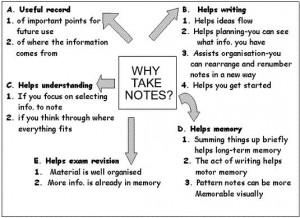
If you do not know what this is for, you will hardly learn the right path towards doing it properly. So the best first step is to understand why you are taking notes. Make sure that you know how big of an investment this is to make sure your school grades come out well every grading period. Knowing how important it is to have the right notes for your subjects will make you want to work hard on it more.
9. Come to school prepared
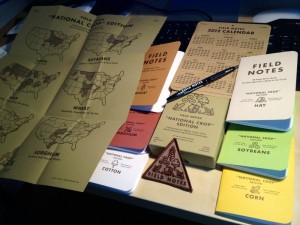
Make sure that when you set foot to school, your mindset is geared towards it. Drop all the distractions and forget about all your other woes. When it’s schooltime, you need to be focused on schoolwork, nothing else. Physically, you need to prepare materials that will help you accomplish taking notes properly. Prepare your things – pens, papers, notebooks, and highlighters. One thing that could take away your focus and concentration on taking notes is cramming for the things that you need to get started. So make sure your bag is packed with everything you need for school.
8. Listen

Proactive listening is what it takes to absorb the right lessons and take down the right notes. If you enter a classroom with a negative outlook, you are setting forth the stage for becoming inattentive. Always think positive. Understand that you have to do what you have got to do because there is a life goal you want to achieve and an ambition you want fulfilled. Afterwards, it will be easy enough for you to focus and lend your attention only to your teacher. Concentrate on how to concentrate; focus you mind on how you can stay focused. This way, even if the discussion takes one big detour, you will not lose your path.
7. Write neatly
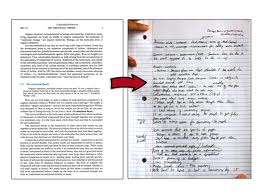
No matter how strong the pressure for you to finish a set of notes is, you should strive hard to write as neat as you can. Your notes will be useless if they are in any way unintelligible. If you have the time, rewrite or recopy your notes when you get home, while the lessons are still fresh in your mind and you will be able to recall parts that even you could not read from your own handwriting. If in case you got lost along the way, you can always ask a classmate-friend’s help to get you back on track.
6. Ask your teacher politely to repeat those you didn’t catch
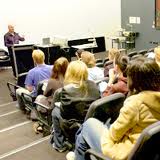
Sometimes you can’t help but miss some important notes you should have taken. Instead of bugging your seatmate in class, why not ask your teacher directly to repeat those parts you didn’t catch. But remember, asking your teacher to repeat is only okay if it is only about some parts and not the whole 30 minutes he has been standing in front of the class.
5. Go over your notes with a friend

Comparing notes will give you a chance to spot mistakes. If there are differences between your notes and your friend’s, go back to the lesson together and see which copy needs to be tweaked.
4. Organize

Classify your notes per subject. This way, you will never have to go out looking for far long enough when you need some notes to finish a research project or whatever school paper might be required from you. It is also easy to study notes when preparing for a test if they are neatly arranged. You can allot one notebook for each subject or keep sections in your notebook to separate a set from another.
3. Don’t go crazy
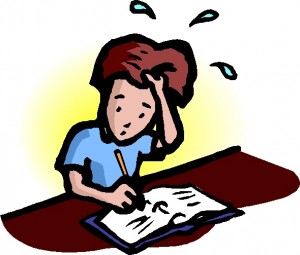
Sometimes due to your deep intent to get all the notes that you need, you tend to overdo it. If you will write down every single word spoken in class, your head will explode even before the class is over. The right way of taking notes is recording only the important ones. There is no need to go the whole nine yards to record everything that your teacher says or everything that you heard spoken inside the classroom. Get serious about the content. To be effective in note-taking, you should know what and how much you should write down. Do not write everything you hear just to lengthen your notes. The meat, the content matters greater than anything else. If the meat of the lesson is not there, your five-page notes can be considered nothing but trash.
2. Find a note-taking method that’s right for you

As mentioned earlier taking notes takes a lot of skill. One such skill is the ability to find a method or technique on note-taking, which you are comfortable with. Just like in singing, dancing, writing, and other skill-based talents, you need to develop your own style so you can increase the rate you are going or your speed as you go. You should also develop a system of cracking codes regarding symbols and abbreviations. It is perfectly fine to use symbols and shortcuts. What’s not is that even you cannot read or understand them. If there are words or phrases in your notes that you do not understand well, make sure to look them up afterwards. Again, only those notes that are easily understood, readable, and intelligible can pass as good notes. The rest are junks.
1. Pay attention

This is definitely the top tip when taking notes. When you pay attention, determining the important notes you should record is easy. When you pay attention, your listening skills flourish. This is the key towards taking all the notes that will help get you through every assignment, every project, and every test.
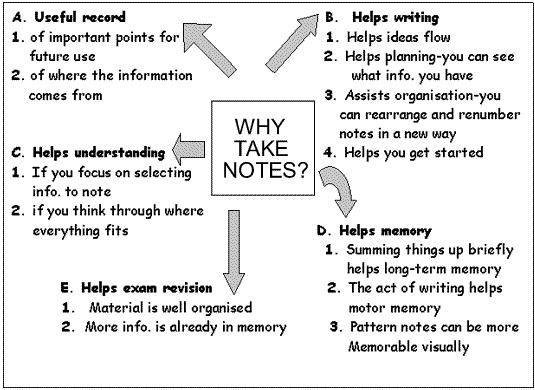
The Cornell method of note-taking might be a good tool to use in the classroom setting.